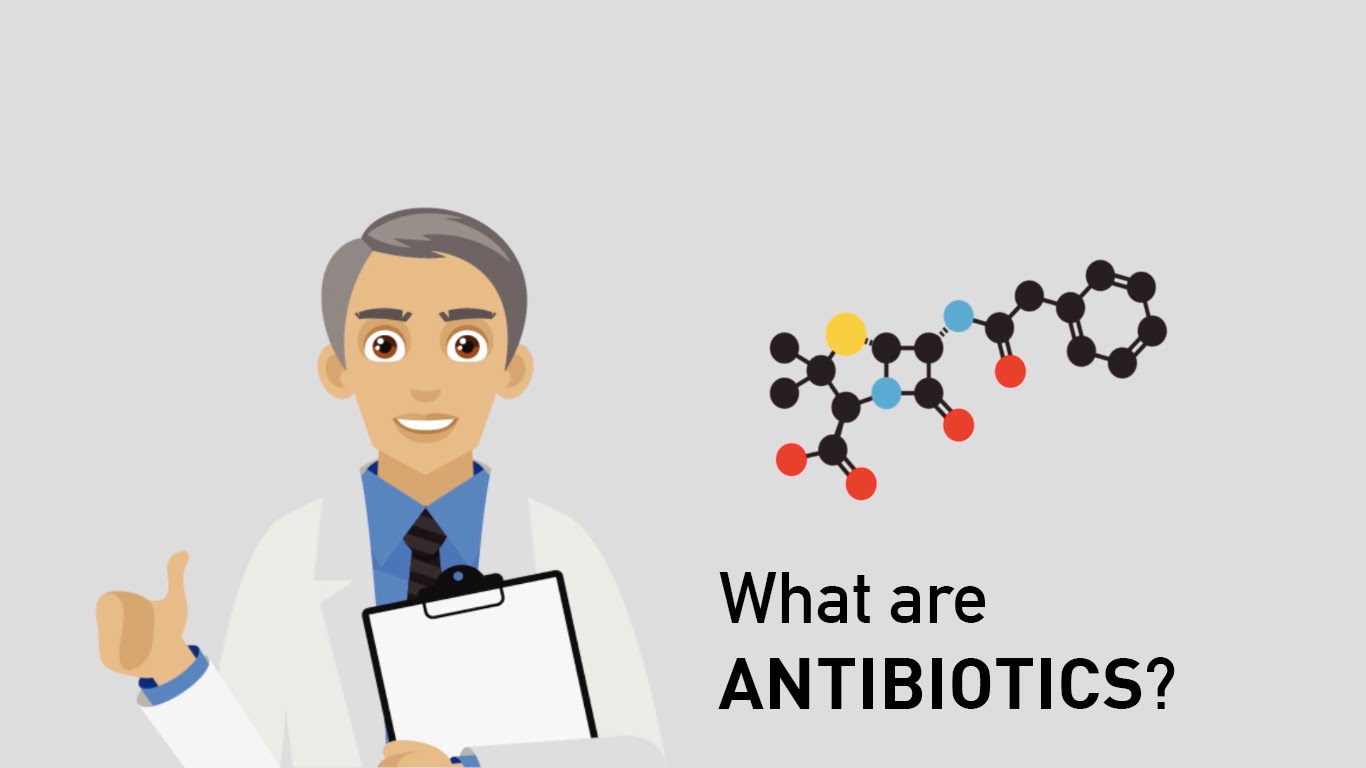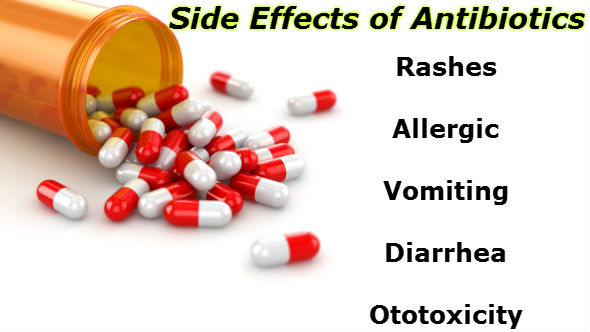Side Effects of Antibiotics
Antibiotics revolutionized medicine in the 20th century they are the most frequently prescribed medications in modern medicine. The first antibiotic was penicillin, discovered accidentally from a mold culture. Today, over 100 different antibiotics are available to cure infections. Other than good uses of antibiotics, they might also have some side effects.Let us know some of the side effects of Antibiotics.

Do you have similar website/ Product?
Show in this page just for only
$2 (for a month)

0/60
0/180
Side Effects of Antibiotics 




Antibiotic literally means ?opposing life?, it is also called an antibacterial, is a type of anti microbial drug used in the treatment and prevention of bacterial infections. They may either kill or inhibit the growth of bacteria. Antibiotics are not effective against viruses such as the common cold and flu.

Antibiotics revolutionized medicine in the 20th century they are the most frequently prescribed medications in modern medicine. The first antibiotic was penicillin, discovered accidentally from a mold culture.
Today, over 100 different antibiotics are available to cure infections. Other than good uses of antibiotics, they might also have some side effects.
Let us know some of the side effects of Antibiotics-
Some people are allergic to certain types of antibiotics, most commonly penicillin. It might be a cause of vomiting, diarrhea, abdominal cramps and itchy allergic reaction. So, it is necessary to prescribe the doctor or pharmacist before taking the medicine.

Allergic Reactions-Allergic reactions commonly have the following symptoms, shortness of breath, rashes, itching, swelling of the lips, face, and fainting. Allergic reactions start right away after you consume the medicine, some reactions can be mild, but others can be serious and need medical attention. Stevens-Johnson syndrome (SJS) is a rare but serious side effect. It?s a reaction that can happen with any medication, including antibiotics. It occurs more often with antibiotics such as beta-lactams and sulfamethoxazole. SJS begins with flu-like symptoms, such as a fever or sore throat. These symptoms may be followed by a painful rash that spreads and blisters. Following that, the top layer of your skin can shed. You must immediately consult the doctor if you have the symptoms.

Gastrointestinal side effects- Many antibiotics cause stomach reactions, the symptoms include nausea, vomiting, cramps, and diarrhea. Mild diarrhea usually clears up after you stop taking the drug. However, if the diarrhea is severe, you may have to consult the medic. Ask your doctor or pharmacist if you can take your antibiotic with food. Eating can help reduce stomach side effects from certain antibiotics such as amoxicillin and doxycycline. However, this approach won?t work for all antibiotics. Some antibiotics, such as tetracycline, have to be taken on an empty stomach. Talk to your doctor to make sure you know how you?re supposed to take your drug and if there are other ways you can ease stomach side effects.

Blood Reactions-Some antibiotics can cause changes to your blood. For example, leukopenia is a decrease in the number of white blood cells. It can lead to increased infections. Another change is thrombocytopenia, which is a low level of platelets. This effect can cause bleeding, bruising, and slowed blood clotting. Beta-lactam antibiotics and sulfamethoxazole cause these side effects more often. You can?t prevent these reactions. However, you?re at higher risk of them if you have a weakened immune system. If your immune system is weak, discuss it with your doctor before you take an antibiotic. In rare cases, certain antibiotics can cause heart problems such as an irregular heartbeat or low blood pressure. The antibiotics most often linked with these side effects are erythromycin and some fluoroquinolones such as ciprofloxacin.

Fever and Photosensitivity-With antibiotic such as tetracycline, your body can become more sensitive to light. This effect can make light seem brighter in your eyes. It can also make your skin more prone to sunburn. Photosensitivity should go away after you finish taking the antibiotic.If you know you?ll be out in the sun, take certain precautions to stay safe and comfortable. Be sure to wear sunscreen with UVA and UVB protection, and reapply sunscreen as directed on the label. Also, wear protective clothing and accessories, such as a hat and sunglasses.
Fevers are a common side effect of many medications, including antibiotics. A fever may occur because of an allergic reaction to a medication or as a bad side effect. Drug fevers can occur with any antibiotic, but they?re more common with beta lactams, cephalexin, minocycline, and sulfonamides .If you get a fever while taking an antibiotic, it will likely go away on its own. If your fever doesn?t go away after 24-48 hours, consult your doctor.
CONTINUE READING
Side Effects of Antibiotics
Reactions of Antibiotics
Antibiotic Reactions
Antibiotics side-effects
what are side-effects of antibiotics.
Health
Internet
International
Sandeep Semwal
Content Writer
